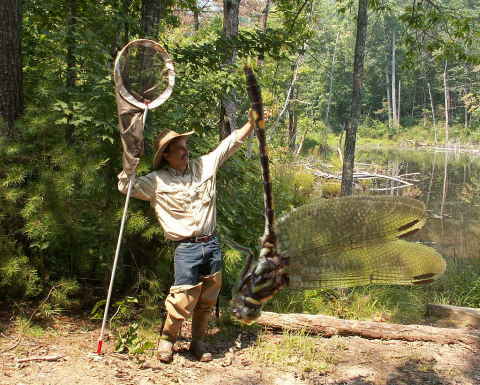
Wade B. Worthen
Rose J. Forgione Professor of Biology
Biology Department
Furman University
We share the planet with millions of other species. These species interact with one another and the non-living environment in complex ecosystems that provide humans with a variety of important services. Natural and agricultural ecosystems produce the food we eat, clean our air and water, and produce a nearly limitless variety of materials and chemicals that we depend on every day. Over the last 10 years, ecologists have demonstrated that the ability of ecosystems to provide these services often correlates with the number of species in the system - its ecological biodiversity. So, not only is biodiversity beautiful and interesting in its own right, it is also functionally important to the sustainability of ecosystems and human civilizations.
As a community ecologist, I study factors that affect biodiversity. For example, biodiversity tends to decline as environments become more physiologically stressful - selecting for the subset of species that can tolerate the stress. The stressors might be extreme temperatures, extreme desiccation, or increasing concentrations of natural or anthropogenic toxins. Typically these stressors increase as the size of a natural area declines, so diversity tends to decline with habitat size. However, biodiversity is also affected by interactions with other organisms in the environment - particularly the competitive and predator-prey relationships that occur between species.
Now, these interesting interactions occur in all communities - from the tiny communities of protists in a stagnant puddle to the large mammal communities on the African plains. My research focuses on insect communities. I've selected these communities for several reasons. First, these communities are easily manipulated in the field: resources can be modified, the densities of different competing or predatory species can be manipulated, and the effects of these changes on the biodiversity of the system can be measured. In addition, insects are cool!
So, if you have an interest in doing field ecology, come by and chat. I am willing and able to supervise ecological research on a wide variety of plants and animals. Take a look at the publications in my CV and see what students have done in the past. In addition, there may be several opportunities for research both on and off campus.
Furman has an agreement with The Nature Conservancy and the Spartanburg and Tryon Water Commissions and there is a 1500 acre parcel of land available for ecological research called The Furman Forest, which is a lovely place to conduct summer research. Please come by and talk to me about your research interests.